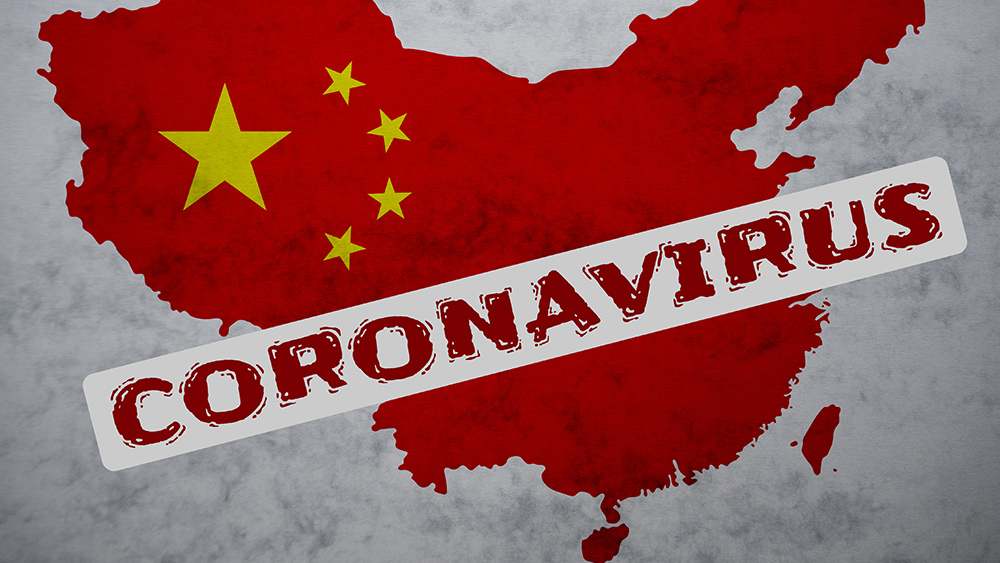
Advertisement
As the world continues to reel from the effects of the coronavirus, it’s worth noting that China, where the outbreak started, has been dogged by controversy, especially for its initial response. When reports of a mysterious viral pneumonia first appeared in Wuhan in December, the Chinese government played down the severity of the outbreak and quashed any dissension, before finally acknowledging it in mid-January.
However, U.S. intelligence officials were already warning of an outbreak sweeping through the erstwhile epicenter as far back as late November last year, according to ABC News.
According to two officials familiar with the document’s contents, concerns about what is now known to be the coronavirus pandemic were initially detailed in a November intelligence report by the National Center for Military Intelligence (NCMI). The report was the result of an analysis of wire and computer intercepts combined with satellite images.
“Analysts concluded it could be a cataclysmic event,” stated one of the sources on the NCMI’s report. The source also confirmed that the report was “briefed multiple times to” to the Defense Intelligence Agency (DIA), the Joint Chiefs of Staff and the White House. The Pentagon, however, issued a statement Wednesday denying that the “product/assessment” existed.
Widely available, but took time to reach upper echelons
According to the sources, the NCMI report was made widely available to people authorized to access intelligence community alerts. Following its release, other intelligence community bulletins also began circulating through confidential channels across around Thanksgiving. These bulletins stated that China’s leadership knew that the epidemic was out of control even as crucial information was kept from public health agencies and foreign governments.
Former Deputy Assistant Defense Secretary Mick Mulroy, now a contributor for ABC News, said that the report would have set off a “significant alarm.” He also said that it would have been “followed up by literally every intelligence-collection agency.”
Mulroy, who previously worked in the Central Intelligence Agency (CIA), stated that the NCMI does serious work that senior government leaders usually don’t ignore.
When the report came out in November, however, it did not immediately make its way to the upper echelons of government. Intelligence often only gets elevated once analysts and officials reach a certain threshold of confidence in their assessment. The sources describe repeated briefings December for policy-makers and decision-makers across the federal government and the National Security Council before the report was finally elevated. That happened in January when information that the U.S. intelligence community had gathered about the outbreak in China appeared in the President’s daily briefing.
Pentagon denies the report’s existence
When asked about the report on ABC’s This Week last Sunday, Secretary of Defense Mark Esper mentioned told George Stephanopolous that he was not aware of such a report. However, Esper confirmed that they have people who monitor the pandemic closely. “So, our people who work these issues directly watch this all the time,” explained Esper.
On Wednesday, NCMI Director Col. R. Shane Day provided a statement saying that media reports about the report were false.
“As a matter of practice the National Center for Medical Intelligence does not comment publicly on specific intelligence matters. However, in the interest of transparency during this current public health crisis, we can confirm that media reporting about the existence/release of a National Center for Medical Intelligence Coronavirus-related product/assessment in November of 2019 is not correct. No such NCMI product exists,” stated Day.
Intelligence work continues
The veracity of the report notwithstanding, the U.S. intelligence community is continuing its work on the virus. In particular, intelligence officials are trying to determine exactly how many cases and deaths have occurred in countries like China, where U.S. officials state that the official figures cannot be trusted. (Related: China’s response to COVID-19 is the latest in string of COVER-UPS and suppression.)
Beijing officially notified the World Health Organization of the coronavirus outbreak on December 31. However, according to a source briefed on the matter, Chinese social media and state-controlled media had begun providing public clues about the struggle to contain the outbreak by early to mid-December.
“I trust that the [intelligence community] was looking very hard at China in the early days when the Chinese were less than forthcoming,” said former Director of National Intelligence James Clapper. “It’s a crucial role when governments aren’t forthcoming.”
Sources include:
Advertisement
Advertisements
















